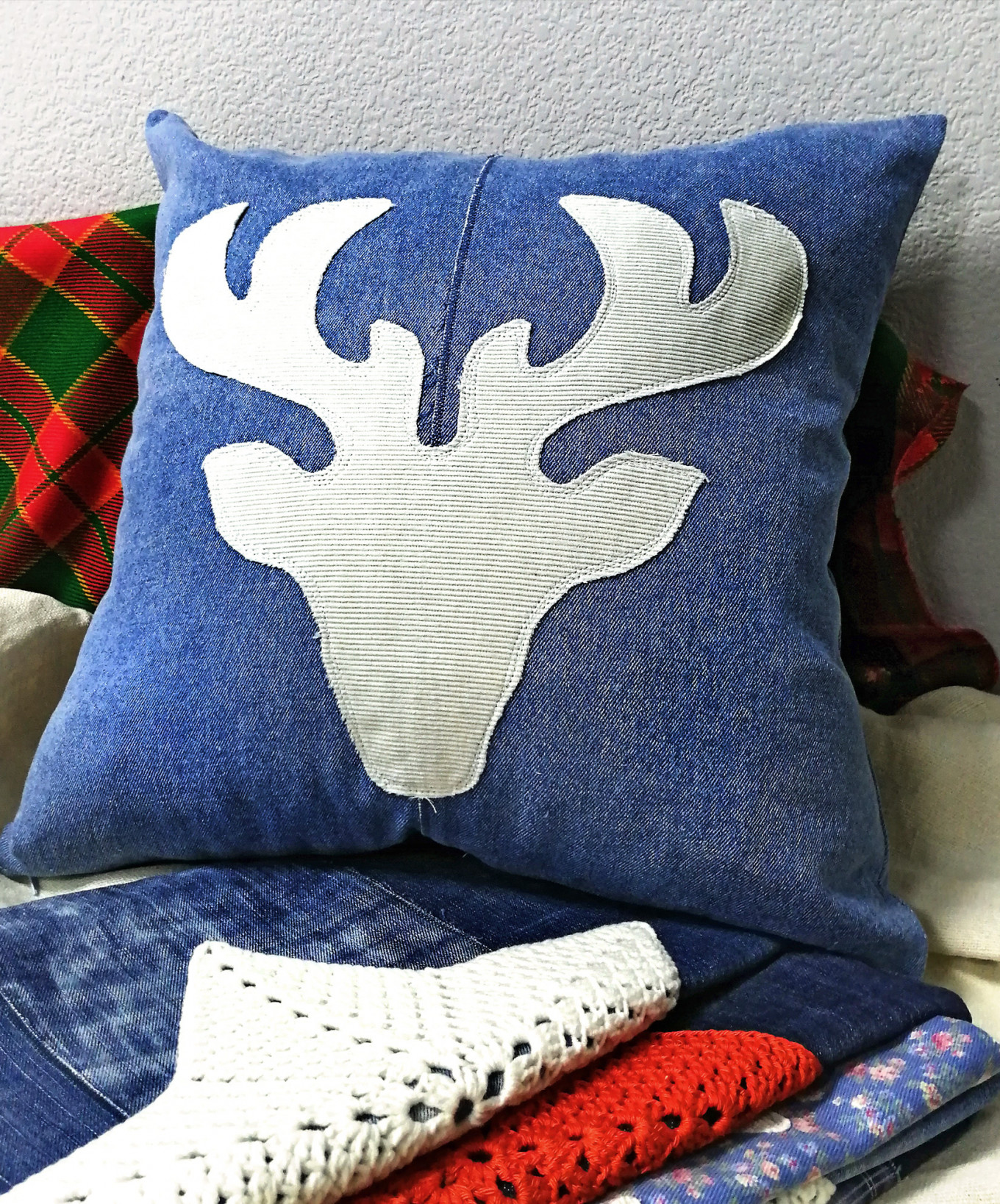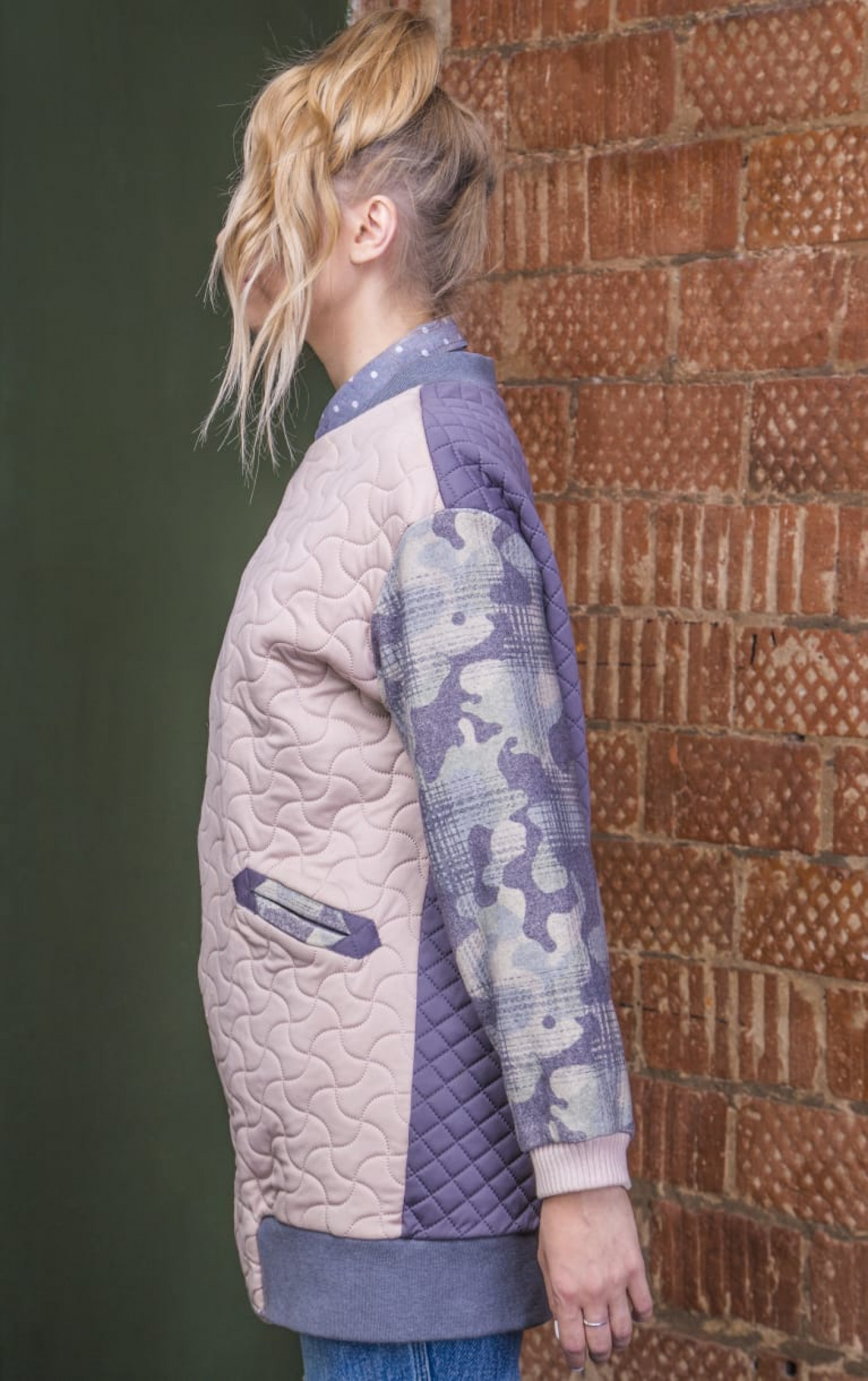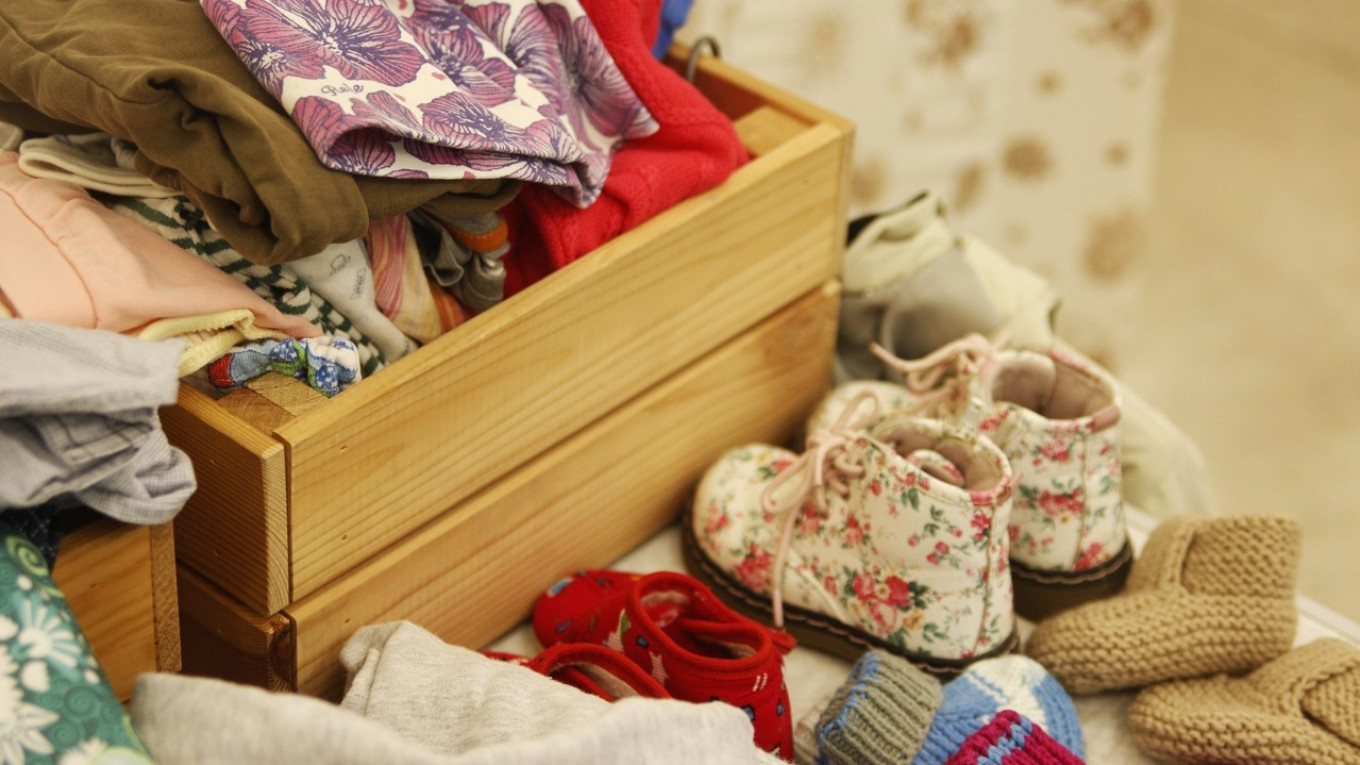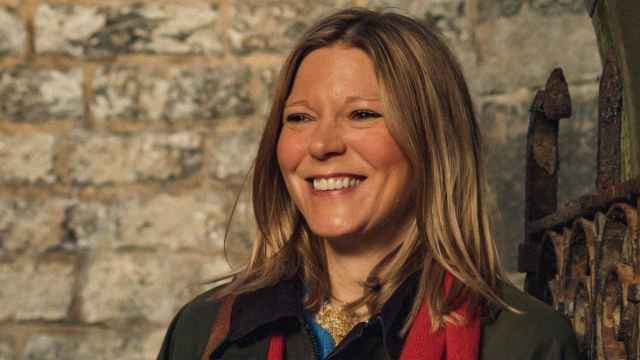Altering an old shirt or putting a patch on your favorite jeans means not only saving on buying a new thing but also saving your house from clutter — and maybe even saving the environment.
Four years ago Valeria Tsvirko founded the “ANTYPlyushkin” project in a St. Petersburg library communication center. She originally set it up as an exchange fair, but now she invites lecturers to talk about the ecology of consumption and marketing — which convinces people to buy what they don’t need — fashion, and how to create a wardrobe without harming the environment. She also invites artisans who give things a second life.
“It is important to help participants to see that rational consumption and an ecological lifestyle does not mean giving up everything. For me, rational consumption is not only about the environment, it’s about self-respect,” Valeria Tsvirko told The Moscow Times.
Tsvirko uses natural cosmetics, does not make impulsive purchases of clothes, uses sharing services, and does not buy more food than she can consume. In addition, she always pays attention to packaging, uses mesh and cloth bags, glass bottles, mugs, and tries to buy food in stores where it is sold without packaging. At home she sorts what plastic she does buy and recycles. “I love cardboard packaging because I can make a lot of games for my daughter out of it,” she said.
For anyone just starting out, she advises that the first thing to do is look at everything you already have and make lists. “When you realize that you have five pink lipsticks, you’re unlikely to buy the sixth,” she explains. Tvsvirko also advises doing the same with your wardrobe; don’t buy food that you won’t consume right away or that can’t be stored for a long time; don’t buy cosmetics just because of the beautiful packaging or to try it. “The main thing is to try to understand why this works for you — what do you get out of it personally? If you find ‘your’ benefit, you will quickly get involved,” she says.
The project ‘Eco-decluttering: a second life for things!’ provides information about where to sell or give away things you don't need anymore and how to lead a more eco-friendly life. Its founder, Yulia Sukhanova, has been interested in this since childhood.

Yulia donates damaged things to recycling and good ones to charity. Other things find a second life in her home. Among her good eco-habits is using vinegar and water, citric acid, soda, and other natural products instead detergent. “If you at least reduce the number of home care products or buy just one of them, it will already be more environmentally friendly,” Sukhanova said.
Re-use creatively
Upcycling is the process of transforming by-products, damaged or scrap materials, useless or unwanted products into new materials or products.
In Russia, Vera Ryabkova comes up with creative ways to use old jeans, which she has parlayed into a small workshop and the “Dzhizn” project.
The project works with companies that provide the project with remnants from apparel and leather industries. Ryabkova and her friends are also developing a project to save old buttons and jewelry.

But jeans are Ryabkova’s favorite kind of used clothing, since they can be re-used even if they are worn. They first make patches and then create a plethora of apparel, accessories, and home decor:, such as bags, jewelry, carpets, chairs, ottomans, pillows, wall panels, interior decor, flowers, toys, and slippers.
Yulia Belyayeva is a designer who gives clothes a second life. She began when she was in school, well before the ecology movement. She altered things because she wanted to have something unique but didn’t have enough money for designer and luxury clothing. Now it’s her job.
“Re-purposing old things is essential to conserve the resources of the planet. And besides, the results are unique. Unfortunately, in Russia a lot of people still don’t understand upcycling and environmental issues. They don’t see why something made out of old scraps usually costs more than a new mass-market item,” Belyayeva said.
She said that if the fabric is completely shabby, then it is better to send for recycling. If there are slight worn spots, holes, or snags, they can be covered with appliqués, embroidery, inserts from other fabrics, and so on. Or it might be made into a down jacket, a swimsuit, or something else depending on the creativity and enthusiasm of the artisan.
“First, upcycling became a trend. But now it’s a business model,” she said.
A Message from The Moscow Times:
Dear readers,
We are facing unprecedented challenges. Russia's Prosecutor General's Office has designated The Moscow Times as an "undesirable" organization, criminalizing our work and putting our staff at risk of prosecution. This follows our earlier unjust labeling as a "foreign agent."
These actions are direct attempts to silence independent journalism in Russia. The authorities claim our work "discredits the decisions of the Russian leadership." We see things differently: we strive to provide accurate, unbiased reporting on Russia.
We, the journalists of The Moscow Times, refuse to be silenced. But to continue our work, we need your help.
Your support, no matter how small, makes a world of difference. If you can, please support us monthly starting from just $2. It's quick to set up, and every contribution makes a significant impact.
By supporting The Moscow Times, you're defending open, independent journalism in the face of repression. Thank you for standing with us.
Remind me later.






